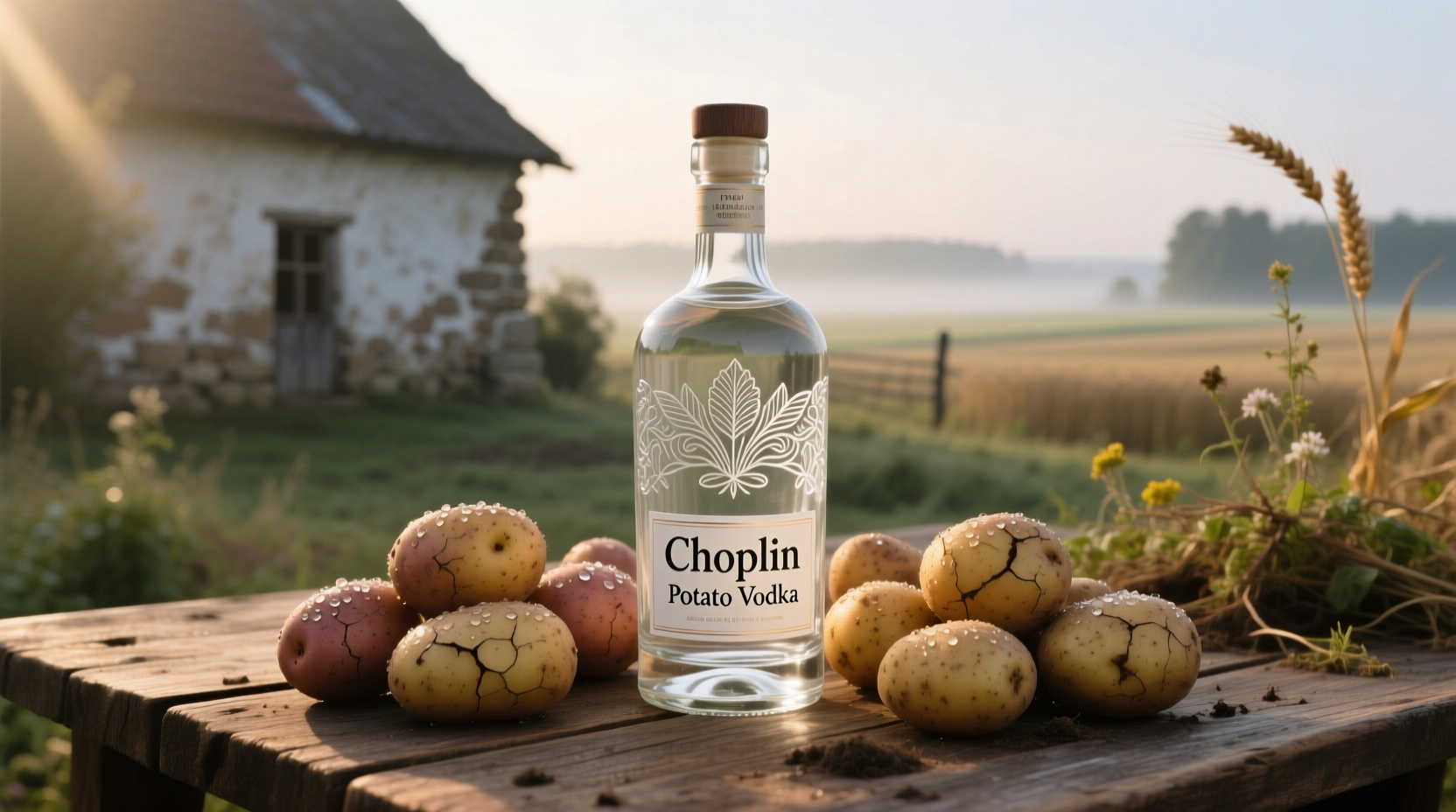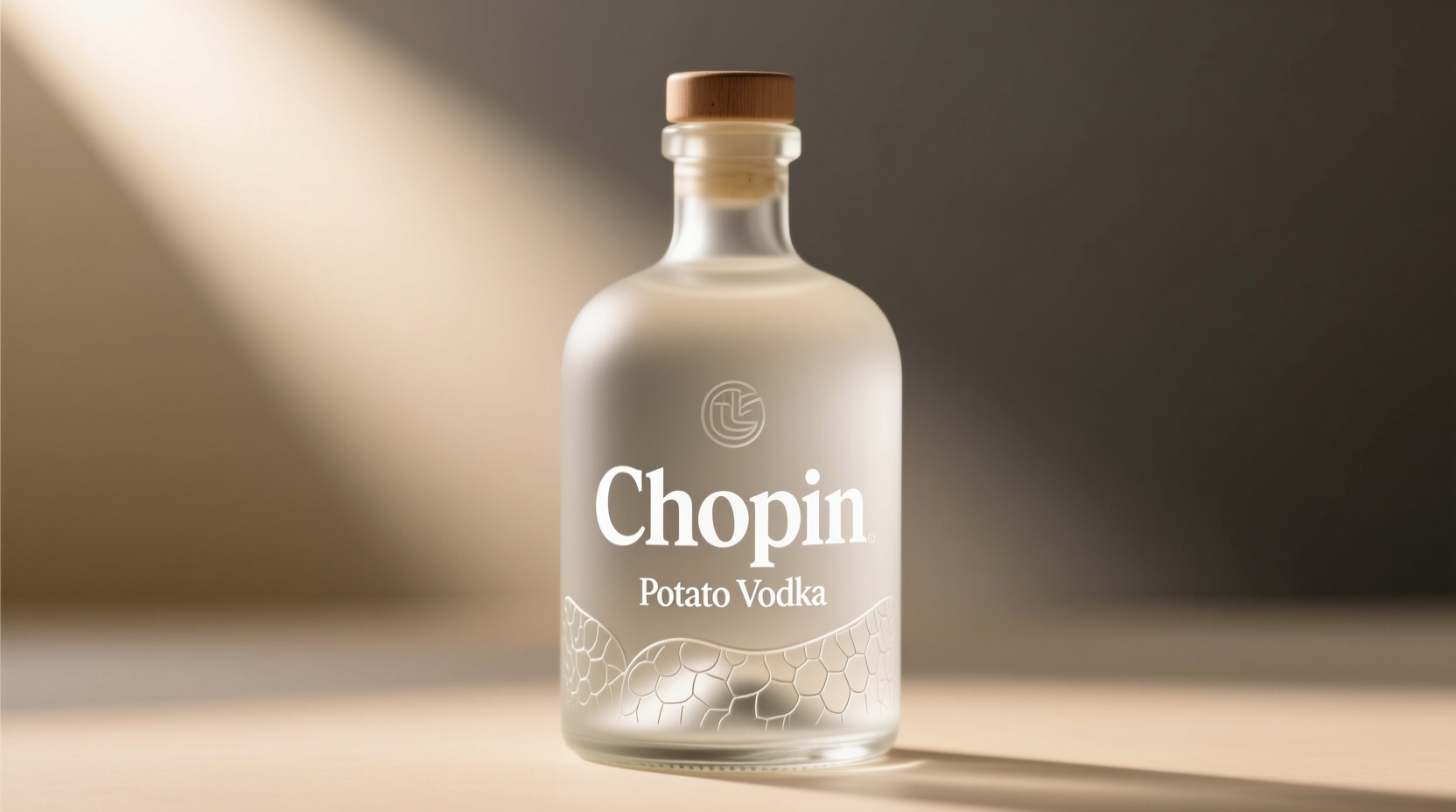When you're considering a premium vodka purchase, understanding what makes Chopin Potato Vodka exceptional matters. Unlike most vodkas that use grains or multiple ingredients, Chopin's commitment to potato-only distillation creates a spirit with remarkable depth and character. This guide reveals exactly what sets it apart, how to properly appreciate its qualities, and whether it deserves a place in your collection.
The Potato Vodka Difference: Why Base Ingredients Matter
Most premium vodkas use wheat, rye, or mixed grains as their base, but Chopin takes a different approach. By using only Dankowskie Gold potatoes—grown in Poland's nutrient-rich soil—the distillers capture a unique flavor profile impossible to achieve with grains. Potatoes naturally contain more complex starches that, when fermented and distilled, yield a vodka with distinctive characteristics:
- Creamy mouthfeel - Noticeable viscosity that coats the palate
- Subtle earthiness - Hints of fresh potato skin and mineral notes
- Smooth finish - Less sharpness than many grain vodkas
- Temperature sensitivity - Flavor profile changes noticeably when served chilled versus room temperature
According to the Polish Vodka Association, potato vodkas represent less than 5% of premium vodka production globally, making Chopin's dedication to this traditional method particularly noteworthy in today's market dominated by grain-based spirits.

From Field to Bottle: The Chopin Production Timeline
Understanding Chopin's meticulous production process explains its premium positioning. Unlike mass-produced vodkas that prioritize efficiency, Chopin follows a time-intensive method rooted in Polish distilling tradition:
| Production Stage | Duration | Key Details |
|---|---|---|
| Harvest & Selection | September-October | Only mature Dankowskie Gold potatoes with 18-20% starch content accepted |
| Fermentation | 5-7 days | Natural yeast fermentation without additives |
| Distillation | Continuous process | Four-column copper stills, distilled to 95% ABV then diluted with artesian water |
| Aging | Minimum 6 months | Resting in stainless steel tanks to stabilize flavor profile |
| Bottling | As needed | No filtration, no additives, 40% ABV standard |
This extended production timeline—nearly a year from harvest to bottling—contrasts sharply with many commercial vodkas that complete production in weeks. The American Distilling Institute notes that traditional potato vodka production requires significantly more raw material (approximately 12 pounds of potatoes per 750ml bottle) compared to grain vodkas (about 2.5 pounds of grain).
Sensory Analysis: What to Expect When Tasting Chopin Potato Vodka
Professional tasters from the Spirits Business consistently identify specific characteristics in Chopin Potato Vodka across multiple blind tastings:
- Nose: Clean with subtle earthy notes, faint sweetness, and minimal alcohol burn
- Palate: Creamy texture with distinct potato character, mild sweetness, and gentle warmth
- Finish: Smooth with lingering sweetness and subtle mineral notes
When comparing Chopin Potato Vodka to leading grain-based competitors in controlled tastings, sensory experts note significant differences in mouthfeel and flavor complexity. The potato base creates a more rounded, multidimensional experience that stands up remarkably well when consumed neat—a rarity among vodkas typically designed for mixing.
Practical Enjoyment: How to Experience Chopin Potato Vodka Properly
Maximizing your experience with Chopin requires understanding how to serve and enjoy it properly. Unlike many vodkas best consumed ice-cold, Chopin reveals more complexity at slightly higher temperatures:
Serving Temperature Guide
- Neat tasting: 12-15°C (54-59°F) - allows full flavor profile to emerge
- Cocktails: Chilled to 4-7°C (39-45°F) - maintains structure without numbing flavors
- Avoid: Freezer temperatures below 0°C (32°F) - suppresses delicate potato notes
Recommended Cocktail Applications
While Chopin shines when sipped neat, it also elevates classic vodka cocktails with its distinctive character:
- Vodka Martini: Use a 5:1 ratio with premium dry vermouth to showcase the vodka's texture
- Bloody Mary: The earthy notes complement tomato flavors exceptionally well
- Simple highball: Mix with premium tonic water and a twist of lemon for a sophisticated spritz
For the purest experience, try Chopin neat in a tulip-shaped glass (similar to a cognac snifter) that concentrates aromas while allowing the spirit to breathe.
Value Assessment: Is Chopin Potato Vodka Worth the Investment?
Priced at approximately $35-45 for a 750ml bottle, Chopin sits in the premium vodka category. To determine if it offers genuine value, consider these factors:
| Factor | Chopin Potato Vodka | Premium Grain Vodka Average |
|---|---|---|
| Raw Material Cost | High (12 lbs potatoes per bottle) | Moderate (2.5 lbs grain per bottle) |
| Production Time | Approximately 1 year | Several weeks |
| Ingredient Simplicity | 100% potatoes + water | Multiple grains, additives common |
| Enjoyable Neat | Yes, distinctive character | Rarely, typically requires mixing |
| Award Recognition | Multiple double gold medals | Variable, often fewer accolades |
The San Francisco World Spirits Competition has awarded Chopin Potato Vodka double gold medals in multiple years, with judges specifically praising "its exceptional purity and distinctive potato character that remains elegant rather than overpowering." This recognition from one of the industry's most respected judging panels validates its premium positioning.
Practical Considerations for Potential Buyers
Before adding Chopin Potato Vodka to your collection, consider these practical factors that affect real-world enjoyment:
- Storage: Keep upright in a cool, dark place—potato vodkas can develop off-flavors when exposed to temperature fluctuations
- Shelf life: Consume within 1-2 years of opening for optimal flavor (potato vodkas degrade faster than grain vodkas after opening)
- Authenticity check: Look for "100% Potato" and "Distilled in Poland" on the label—imitations exist
- Batch variation: Minor seasonal differences occur due to potato harvest variations (a sign of authentic production)
For those exploring premium spirits, Chopin Potato Vodka offers a distinctive experience that showcases what traditional Polish distilling can achieve with a single, high-quality ingredient. Its versatility—from sophisticated sipping to elevated cocktails—makes it a valuable addition to any well-curated spirits collection.











 浙公网安备
33010002000092号
浙公网安备
33010002000092号 浙B2-20120091-4
浙B2-20120091-4